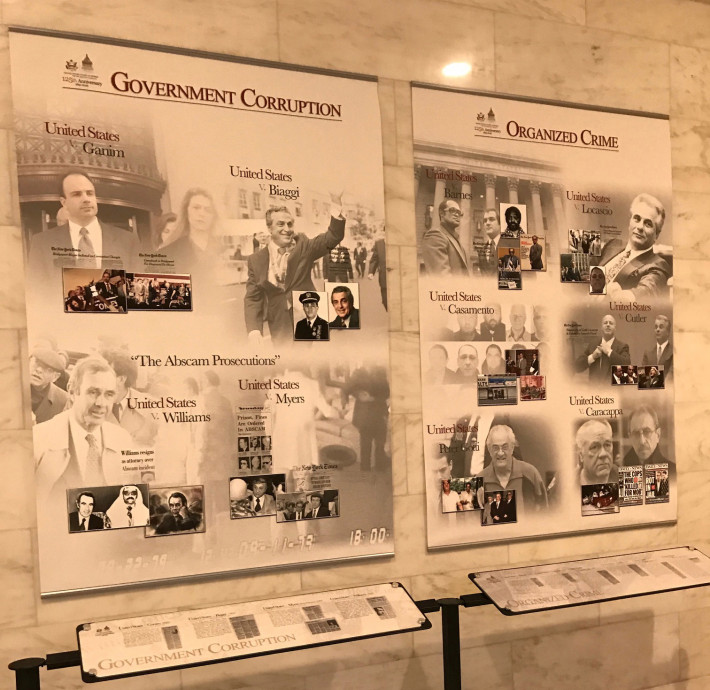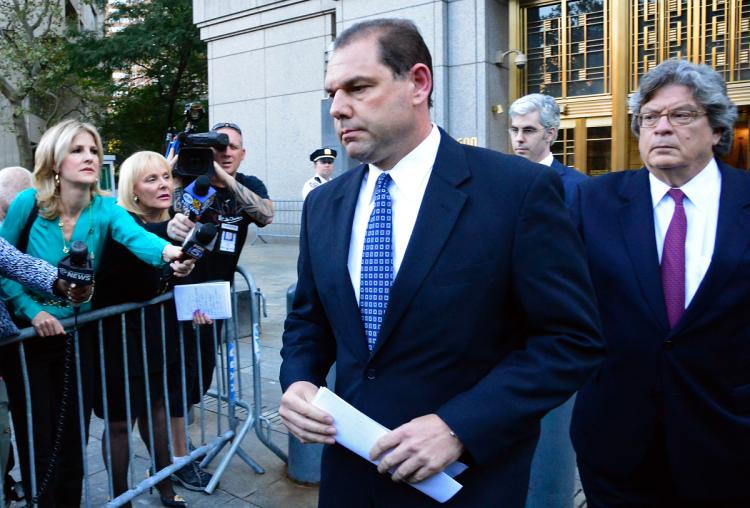This material belongs to: New York Post.
Ex-Gov. Cuomo aide Joe Percoco doesn’t want to be lumped in with poster boys for government corruption.
Lawyers for the accused bribe-taker and his alleged co-conspirators successfully petitioned to have a Manhattan federal courthouse remove a hallway display featuring famous convictions before his January trial.

The wallboards — part of an exhibit celebrating the 125th anniversary of the Second US Circuit Court of Appeals — featured 11 giant posters heralding high-profile federal convictions, including those of ex-New York Congressman Mario Biaggi, former Bridgeport Mayor Joseph Ganim, former hedge-fund manager Raj Rajaratnam and even Mafia don John Gotti.
But lawyers for Percoco and the other defendants wrote Manhattan federal Judge Valerie Caproni in October to complain about the display, which they said could prejudice jurors.
“The display is clearly meant to capture the eye of anyone passing by,” said the letter by lawyer Daniel Gitner on behalf of the group of defendants.
“A juror might assume from the display that a conviction in a public corruption case will later be celebrated, and this could encourage the juror, either consciously or on a subliminal level, to vote for conviction.”
The posters were recently removed.
They have been replaced by a much less controversial exhibit — on former Manhattan federal-appeals-court judges who went on to the US Supreme Court, including Thurgood Marshall, Sonia Sotomayor and Ruth Bader Ginsburg.
“We are pleased that our voices were heard. It is the right result,” said Percoco’s lawyer, Barry Bohrer.
Second Circuit Court Executive Karen Greve Milton, whose duties would include overseeing the exhibit, did not return a request for comment.
Percoco — who was so close to the Cuomos that he was referred to as a “third son” by the governor’s dad — stands accused of participating in a widespread kickback scheme that allowed him to pocket $315,000 in bribes from two companies looking to do business with the state.
The former political aide referred to bribe payments as “ziti,” a reference from “The Sopranos,” prosecutors have said.


